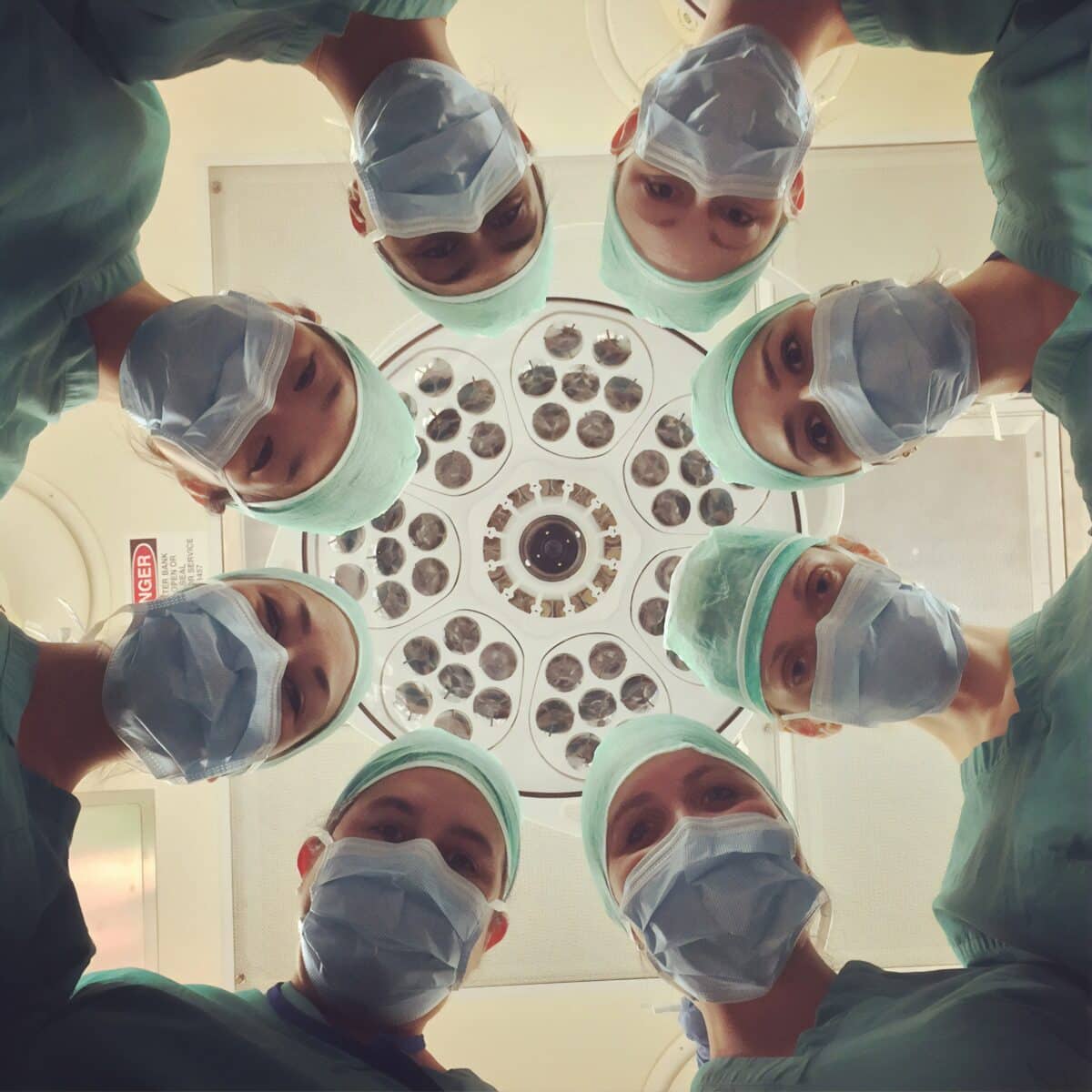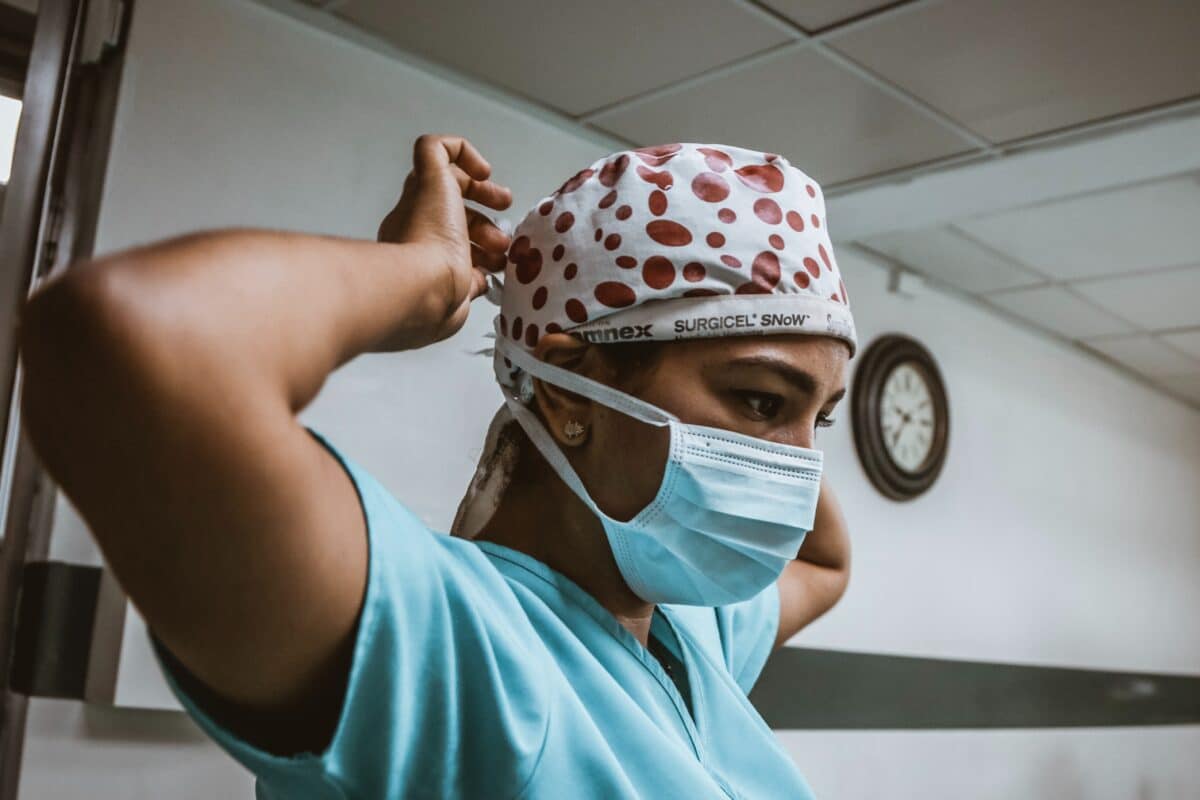What to Expect in Nursing School Clinicals
What to Expect in Nursing School Clinicals
Nursing school clinicals are an important part of a nursing program, and they can be both exciting and intimidating. What is a clinical experience?

A clinical experience is a supervised practice in a healthcare setting that allows the nursing student to gain experience with real patients while being mentored by an experienced nurse. Clinical experiences allow students to apply their knowledge of theory and practice skills in simulated or actual patient care scenarios.
What To Expect In Nursing School Clinicals?
Nursing school clinicals are an important part of a nursing program, and they can be both exciting and intimidating. What can you expect in your first nursing clinical experience?
First, you will learn how to introduce yourself professionally to patients and explain the role of the nurse. You will also practice patient assessments, which involve collecting information about the patient’s physical condition, history, medications, and any other relevant information. In addition to these activities, you will likely observe or participate in a variety of nursing interventions with actual patients themselves, such as wound care, administering medications, and providing patient education.
Second, you will be expected to demonstrate competency in the practical nursing skills that you are learning in your didactic courses. Clinical instructors will assess your competency by observing how you perform tasks and asking questions about what you are doing.
Finally, you will also practice collaboration with other healthcare professionals and learn how to work in teams. You may also have the opportunity to observe how different healthcare professionals interact with each other and the patient.
Pre-Clinical Preparation and Expectations
Before attending your first nursing school clinical, it is important to make sure that you are prepared and have the necessary supplies. This includes obtaining appropriate clothing and supplies, understanding patient rights and safety protocols, familiarizing yourself with clinical settings, procedures, and equipment, and developing time management strategies.
When it comes to clothing, it is important to wear clothing that is both comfortable and professional. Consider wearing scrubs or a nursing uniform. You will also want to make sure that you have appropriate shoes, such as closed-toed shoes, and protective items, such as gloves, masks, and goggles.
Before attending your first nursing clinical it is important to familiarize yourself with the patient rights and safety protocols of the clinical setting. This may include understanding HIPAA regulations, infection control practices, and patient confidentiality. Understanding these protocols will help you provide safe and professional care to your patients.

In addition to understanding the policies of the clinical setting, it is important to familiarize yourself with the procedures and equipment that you may be using in your clinical experience. It is also important to develop effective time management strategies, as you will likely be working with limited time.
Attending most clinicals can be an exciting and intimidating experience. It is important to make sure that you are prepared for your first clinical experience by obtaining the appropriate clothing and supplies, understanding patient rights and safety protocols, familiarizing yourself with clinical settings, procedures, and equipment, and developing time management strategies. With proper preparation, you can feel confident and prepared to provide safe, professional care to your patients.
Clinical Rotations
Clinical rotations are an important part of your nursing school experience. You will be assigned to a variety of clinical areas, such as medical-surgical units, obstetrics and gynecology (OB/GYN) departments, psychiatric units, and emergency rooms. Each rotation will allow you to gain hands-on experience in the different areas of nursing care.
Clinical rotations typically last four to eight weeks and you will be required to attend for a minimum number of hours per week. During your clinical rotations, you will be assigned to a faculty member or preceptor who will provide direction and feedback about your performance and clinical hours. You will also be required to complete assignments and tests related to the clinical rotation.
Different Types of Nursing School Clinicals Experiences
Nursing school clinicals provide students with valuable hands-on experience in a variety of healthcare settings. Depending on the program, there are a variety of clinical experiences ranging from hospital settings to community health clinics and even home visits. Each setting provides unique opportunities for nursing students to gain experience in the world of nursing.
Here are some of the different types of nursing school clinical that you may experience during your program:
Hospital Settings
Students gain experience in hospital settings, such as medical-surgical units, emergency rooms, and operating rooms. This provides students with the opportunity to observe and participate in patient care, the medical field, diagnostic testing, patient safety, and bedside manner.
Community Health Clinics
Community health clinics provide students with the opportunity to work directly with patients in a variety of settings. These experiences may include health screenings, immunizations, home visits, and health education.
Mental Health Clinics
Mental health clinics provide students with the opportunity to learn about mental health facilities, illnesses, and treatments. This may involve working directly with patients who are struggling with mental health issues, such as depression, anxiety, bipolar disorder, or substance abuse.
Home Visits
Home visits provide students with the opportunity to gain experience in a variety of settings, including a patient’s home. Home visits allow students to observe and assess a patient’s wellness, medications, and overall health in the comfort of their own home.
Interacting with Patients and Healthcare Professionals
Nursing school clinicals are an important part of your education, allowing you to gain real-world experience in providing care to patients. During your clinical experiences at nursing schools, you will have the opportunity to interact with both patients and healthcare professionals. These interactions will help you learn how to provide compassionate, professional care to all of your patients.

When interacting with patients, it is important to be respectful, understanding, and empathetic. You should listen to the patient’s concerns and understand their needs to provide the best care possible. Additionally, you should always be aware of patient rights and confidentiality issues.
When interacting with healthcare professionals, it is important to be respectful, attentive, and professional. You are there to learn from them so be sure to ask questions when necessary and take notes for future reference. It is also important to be aware of any protocols or policies that they may have in place.
Gathering Necessary Information for Reporting
When preparing for nursing school clinicals, you must have all the necessary information you need to properly report on your experiences. This includes gathering patient histories and medical records, as well as any other data that may be relevant to your performance.
It is also important to take notes during each rotation to document your observations and experiences. Taking notes will help you remember the details and be better prepared for any future clinical rotations. Additionally, be sure to ask your instructors or preceptors if there are any other forms of documentation that you need to complete before the end of the rotation.
Attendance Preparation
When attending nursing school clinicals, you must arrive on time and have all of the necessary materials with you. This includes textbooks, notes, medical equipment, scrubs, and any paperwork you may need. Additionally, it is important to be aware of the rules and regulations of the nursing school clinicals work site before you arrive so that you are prepared for your experience.
It is also important to be mindful of any protocols or policies that the healthcare facility itself has in place. This includes understanding patient confidentiality laws and being aware of any HIPAA regulations that may apply.
Mental and Physical Demands of Clinical Rotations
Clinical rotations can be physically and mentally demanding, but with the right preparation, they can also be incredibly rewarding. During clinical rotations, you will be expected to work long hours on your feet, so it’s important to make sure that you’re in good physical shape before starting.
In addition, you should also make sure that you get plenty of rest and stay hydrated throughout the day.
Mentally, clinical rotations can be challenging as you will be exposed to many different types of patients in a variety of settings. It is important to remain professional at all times and remember that every patient is valuable and deserves your respect and compassion.
Additionally, it is important to stay on top of all the paperwork associated with each patient’s care so that everything is properly documented and reported.
Post-Clinical Reflection
Post-Clinical Reflection is an important part of the nursing school and clinical training experience. After each rotation, it is important to take time to reflect on what you have learned and how you can apply it in future situations.
This reflection process will help you understand the big picture of patient care and gain greater insight into the profession. Additionally, reflecting on your experiences will allow you to identify areas where you need additional training or practice.
After completing your first clinical rotations here, it is important to review your notes and any additional paperwork that you may have filled out. This will help you understand the bigger picture of what you learned during your rotation and how it can be applied in future situations.

Be sure to think critically about the experience and make connections between different concepts and scenarios. Additionally, reflect on any challenges or successes that you encountered during the rotation so that you can identify areas where you need additional practice.
Finally, be sure to share your experiences with your clinical instructor and preceptor so that they can provide feedback and guidance as you move forward in your career.
Self-Evaluation of Performance
It is important to take time to self-evaluate your performance during nursing school clinicals. Reflecting on your experiences will help you identify any areas for improvement and allow you to become a more effective and successful nurse.
When evaluating your performance, consider the following: were you able to complete all tasks within the timeframe given? Were you able to identify potential problems and respond appropriately? Did you work well with other members of the healthcare team? Additionally, reflect on how comfortable you were in different settings and with different patient populations.
By taking the time to self-evaluate your performance, you can gain a better understanding of how to best apply the knowledge and skills that you have acquired in clinicals. Additionally, it will help you become more confident in your abilities as a nurse.
In addition to self-evaluation of performance during clinical shifts, it is also important for nursing school clinicals students to pay close attention to the skills they are being taught. Before starting a clinical rotation, make sure to review any material provided by the instructor as well as any additional resources available. Additionally, take time during each shift to ask questions and practice the skills you are learning.
By focusing on skill development during each clinical rotation, you will be able to build a strong foundation of knowledge that will serve as the basis for your future career in nursing.
Clinical Assessment and Evaluation
Clinical assessment and evaluation are critical components of nursing school clinicals. It is important to observe the patient closely and pay attention to changes in vital signs, physical condition, behavior, and any other indicators that could signal a potential issue. Additionally, it is important to ask questions about the patient’s history, medications, past medical issues, and lifestyle habits.
By taking the time to assess each patient’s condition before providing care, you can help ensure that every patient receives the best possible care. Additionally, it is important to document any changes that occur during treatment so that you can provide evidence-based care.
Finally, it is important to evaluate the effectiveness of each intervention and make adjustments as needed. This will allow you to continually refine your practice and ensure that all patients are receiving the highest quality of care.
Identifying Patient Symptoms and Conditions
Identifying patient symptoms and conditions is a critical part of nursing school clinicals. After assessing the patient, it is important to review any diagnostic tests or imaging results to identify any underlying causes for the current condition.
Additionally, ask questions about the patient’s symptoms and any treatments that they have received in the past. This will help you develop an accurate diagnosis and create a personalized plan of care for each patient.
By taking the time to assess each patient before providing care, you can help ensure that every patient receives the best possible care. Additionally, it is important to identify any potential risks and respond appropriately. This will allow you to provide evidence-based care and continually refine your practice.
Collecting and Analyzing Data to Make Diagnoses and Develop Treatment Plans
When it comes to providing personalized care, collecting and analyzing data is essential. During nursing school clinical as well as in a hospital setting, you will likely be presented with a variety of patient cases that require evaluation and diagnosis. It is important to use the information collected from history taking, physical assessments, laboratory tests, and imaging studies to make an accurate diagnosis.
Once a diagnosis has been made, it is important to develop an individualized treatment plan based on the patient’s specific needs. This could involve medications, lifestyle modifications, or referrals to other healthcare professionals. Additionally, it is important to monitor the effectiveness of each intervention and adjust as needed to ensure the best possible outcomes. All of this improves the nurses’ critical thinking skills.
Administering Medications, Tests, and Treatments as Prescribed by Physicians or Other Healthcare Professionals
Administering medications, tests, and treatments as prescribed by physicians or other healthcare professionals is an important part of providing nursing care. During your nursing school clinicals, you will be expected to administer medications properly and monitor patient response to treatment. You must also understand the indications for each medication and identify any potential interactions or side effects.
It is equally important to understand the indications for diagnostic testing and treatments and ensure that these are administered correctly. This can involve taking blood samples, performing imaging studies, or providing physical therapies. Additionally, it is important to monitor the patient’s response to these treatments and document any changes that occur during care.
Finally, working with other healthcare professionals is an important part of providing comprehensive care. You must be able to collaborate effectively with physicians and other members of the healthcare team to ensure the best possible outcomes for every patient. This will help you develop interpersonal skills and provide evidence-based care.
Documenting All Clinical Experiences, Interactions with Patients, and Treatment
The ability to accurately document all clinical experiences, interactions with patients, and treatments are essential in nursing school clinicals as well as in a professional setting. To provide safe and effective care for each patient, it is important to document detailed information about the assessment, diagnosis, treatment plan, response to treatment, and outcomes.
This information can then be used to inform care decisions and ensure continuity of care if the patient is transferred to another facility or provider.
In addition to documenting patient care, it is also important to document any patient education that is provided. This includes topics such as medication instructions, lifestyle modifications, and follow-up plans. When it comes to documenting patient information, accuracy is essential and can help protect both the patient and the healthcare professionals involved in their care.
Additional Resources
Nursing school clinicals can be a challenging but rewarding experience. As you learn to provide safe and effective nursing care to multiple patients, it can help to have access to additional resources.
This could include books, online articles, or even videos that provide valuable information about topics such as anatomy and physiology, medical terminology, pharmacology, or patient assessment. Having an understanding of these topics can help you make informed decisions when caring for patients and ensure the best possible outcomes.
Nursing School Clinical Handbooks and Guidelines
Nursing school clinicals can be a great way to gain hands-on experience in the healthcare field, but it can also be overwhelming if you don’t know what to expect. Nursing school clinical handbooks and guidelines provide important information about the structure of your clinical rotations and expectations for each rotation.
These handbooks often include detailed descriptions of how to dress, where to go, who to contact, and what to do in different patient care scenarios. They also provide information about the clinical objectives for each rotation, so you can better understand what is expected of you.
In addition to handbooks and guidelines, it is also important to review the policies and procedures of each medical facility where you complete your clinicals. This will help ensure that you are following the rules and regulations of each facility and providing safe care to patients.
Professional Organizations and Conferences
Joining professional organizations and attending conferences can be a great way to stay up-to-date on the latest developments in nursing. These organizations often provide opportunities to network with other professionals, learn from experienced practitioners, and hear about research that could help improve patient care.
Additionally, many of these organizations offer scholarships or grant opportunities that can help you pay for continuing education courses or attend conferences.
Conferences are an especially valuable experience as they allow you to stay up-to-date on the latest trends in nursing and learn more about a variety of topics. Plus, attending conferences can be a great way to meet other nurses who may become mentors or offer valuable advice for your clinicals.
Mentorship Programs
Mentorship programs can be a great way to learn and grow as a student nurse. Having the guidance of an experienced mentor can help you understand the important concepts that are taught in nursing school, as well as gain valuable insight into the day-to-day workings of a professional healthcare setting. Mentors in the nursing curriculum can also provide feedback about your clinical performance and give you advice on how to improve.
Mentorship programs can also offer support when it comes to facing different challenges during your clinical. Experienced nurses can guide how to best handle certain situations and offer advice that can help you grow as a nurse.
Conclusion
Nursing clinicals can be a daunting experience, but it doesn’t have to be. By taking advantage of the resources available to you and seeking out mentorship opportunities, you can make your nursing clinicals and rotations a valuable learning experience and gain the skills necessary for a successful nursing career.
Whether you are just starting or looking to further your education, understanding what to expect in nursing clinicals can help ensure that you are providing safe and effective care for all patients.
